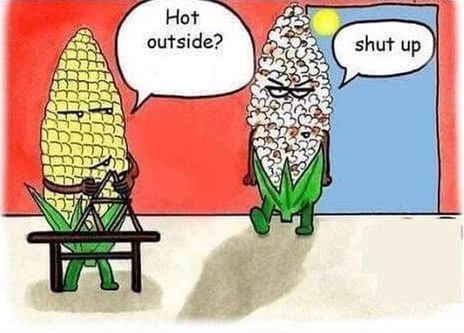
- Community
- Product
- Highlights
- Titans and Friends
- Share Your Knowledge on How a Home's Equipment Can...
- Subscribe to RSS Feed
- Mark as New
- Mark as Read
- Bookmark
- Subscribe
- Printer Friendly Page
- Report Content
As we all are feeling we are living in days of extremes when it comes to the weather. Millions of people from west to east are suffering in extreme heat these days. We need to educate ourselves and our customers on the effects this is having on every aspect of the home and the services we provide to keep them running and efficient.
Extreme heat, such as 100-degree plus weather, can have various effects on anyone’s home HVAC, plumbing, and electrical systems. Here are some potential impacts:
HVAC (Heating, Ventilation, and Air Conditioning) System:
Increased workload: The HVAC system needs to work harder to maintain a comfortable temperature inside your home, which can put stress on the system's components.
Reduced efficiency: The system's efficiency may decrease as it struggles to cool your home adequately.
Increased wear and tear: Continuous operation in high temperatures can accelerate the wear and tear on HVAC components, potentially leading to more frequent breakdowns or malfunctions.
Overheating: The system's compressor or condenser unit may be at risk of overheating if it's exposed to extreme temperatures for prolonged periods. This could cause the system to shut down or fail.
Plumbing System:
Water supply issues: High temperatures can cause the ground to shift, potentially leading to damage to underground pipes, which may result in leaks or pipe bursts.
Water pressure fluctuations: In areas experiencing heatwaves, there may be increased water usage, which can strain the water supply system and result in reduced water pressure.
Expansion and contraction: Extreme heat can cause expansion of metal pipes, which may lead to joint or connection failures. Conversely, cooler water flowing through hot pipes can cause contraction, potentially leading to pipe damage.
Electrical System:
Overloading: During heatwaves, people tend to use more electrical appliances, including air conditioners, fans, and refrigerators. This increased demand can overload electrical circuits and potentially trip circuit breakers or blow fuses.
Voltage fluctuations: Excessive heat can strain the electrical grid, leading to voltage fluctuations or power surges that can damage sensitive electronic equipment.
Transformer failures: Heatwaves can cause transformers to overheat due to increased electricity demand, potentially resulting in power outages.
To protect your HVAC, plumbing, and electrical systems during 100-degree plus weather, here are some helpful hints you can share with all your employees and customers:
HVAC System:
Schedule regular maintenance: Prior to hot weather, have your HVAC system inspected and serviced by a professional to ensure it's in optimal condition.
Clean or replace air filters: Dirty air filters restrict airflow and reduce the system's efficiency. Clean or replace filters regularly to maintain proper airflow and improve energy efficiency.
Keep the system shaded: If possible, provide shade to the outdoor components of your HVAC system, such as the condenser unit, to reduce the risk of overheating.
Use programmable thermostats: Set your thermostat to higher temperatures during the day when you're away to reduce the workload on your HVAC system. Programmable thermostats allow you to automate temperature adjustments.
Plumbing System:
Insulate exposed pipes: Insulate any exposed pipes to protect them from heat and prevent them from expanding or contracting excessively.
Check for leaks: Regularly inspect your plumbing system for any leaks or signs of damage. Promptly repair any leaks to prevent further damage during extreme heat.
Water conservation: During hot weather, be mindful of water usage to reduce strain on the water supply system and maintain consistent water pressure.
Electrical System:
Avoid overloading circuits: Be cautious not to overload electrical circuits by plugging too many appliances or devices into the same outlet or circuit. Distribute the load across multiple circuits if needed.
Unplug non-essential electronics: During heatwaves, consider unplugging non-essential electronics to reduce the overall electrical load on your home.
Install surge protectors: Use surge protectors to safeguard sensitive electronic equipment from voltage fluctuations and power surges.
To minimize the potential impact of extreme heat on these systems, regular maintenance, such as cleaning air filters, checking pipe insulation, and inspecting electrical connections, is crucial. Additionally, maintaining a comfortable indoor temperature and avoiding excessive strain on the systems can help mitigate potential issues.
Additionally, it's essential to stay informed about any extreme weather conditions or heat advisories issued for your area. Following local guidelines and recommendations can help you take appropriate measures to protect your home's systems during high-temperature periods.
You must be a registered user to add a comment. If you've already registered, sign in. Otherwise, register and sign in.
- Electrifying Opportunities: Why Electrical Services are the Future of Home Services in 2024 in Titans and Friends
- HVAC Equipment Changes and How to take Advantage of the Inflation Reduction Act in 2024 in Titans and Friends
- Empowering Excellence: The Vital Role of Training and Networking Conferences in Home Services in Titans and Friends
- Plumbing the Depths: Unveiling the Crucial Role of Plumbers in the American Economy in Titans and Friends
- Embracing the Future: A Glimpse into Home Services Trades in 2024 in Titans and Friends



